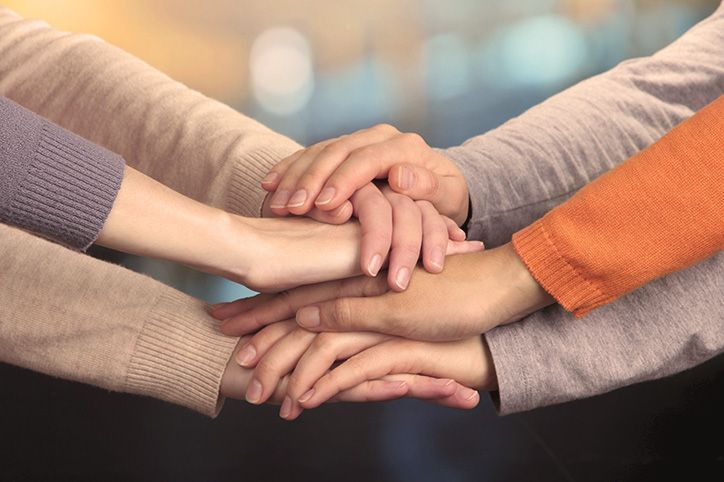Grief is overwhelming for everyone, regardless of their age. When a death occurs in a young adult's life, it comes at a time that is already challenging. Deciding which classes to take, contemplating a career path, learning the dynamics of a new job, developing significant relationships or learning to live independently are just some of the many adjustments already taking place.
Don't be surprised when:
From The Dougy Center's Tips for Young Adults Grieving a Death:
-
Grief comes with a huge range of emotions.
Grief gets stereotyped as sadness or depression and people can get caught off guard when they feel anger, relief, anxiety, numbness, fear, irritation, resentment, restlessness, impatience, etc. The list is long. All of these emotions are normal. If you never cry or get angry, it doesn’t mean there’s something wrong with you. What
we think, feel, do, and say after someone dies can be influenced and affected by everything that makes up who we are, including gender, culture, ethnicity, religious/
spiritual beliefs, sexuality, economic status, where we were raised, where we currently live, and family traditions. -
Grief turns out to be so much more than just emotions.
Your body, brain, mind, and spirit all come along for the grief ride. This could look like exhaustion, feeling amped up, difficulty sleeping, anxiety, and feeling run down with colds, coughs or headaches. You might find that you can’t remember anything (Um, why did I walk in this room?) and it can be really hard to concentrate. Many people find it’s tough to eat, either because their stomach feels tied in knots or because nothing tastes good or right.
-
It's hard to do things you used to be able to do.
Grief takes a lot of mental, emotional, and physical energy. Daily tasks such as grocery shopping, paying bills, taking care of pets and children, cooking, and responding to texts, emails, or phone calls can feel overwhelming.
-
There's no syllabus, how-to manual or timeline for grief.
One of the most shocking aspects can be the reality that there’s no expected course or definable endpoint for grief. It’s as individual and unique as the relationship you had with the person who died. You may find yourself struggling with the thought, “How can I still be grieving when it’s been (x # of days, months, years)?” Sometimes it will be your own protest, coming from a wish to feel differently than you do. Other times this expectation will come from others. Grief isn’t something you have to finish or move past.
-
You don't recognize yourself.
Grief can change everything, including how you feel, think, act, and what you value. For some this can be a clarifying process, bringing priorities into clear focus.
-
Grief shows up when and where it wants.
Grief comes in waves, and sometimes those waves roll in when you least expect them. Maybe it’s walking past the person’s favorite food in the grocery store, hearing a song on the radio, a celebratory event, or a random reminder that leaves you overwhelmed with emotion.
-
Everyone is suddenly a grief expert.
Be prepared for a barrage of unsolicited advice — even from complete strangers. Grief is a universal experience, so pretty much anyone you run into has a story about what they did or didn’t do and how you should or shouldn’t do it too. Sometimes this leads to true understanding, other (most) times it means suggestions, comments, or platitudes that you didn’t ask for and can feel hurtful.
-
Some people are there for you and others fade away.
Grief has a way of bringing relationships into the spotlight. Sometimes the people who can and can’t show up to support you might be surprising.
-
You grieve more than just the person.
You might grieve the person you were before the death or the way your life used to be. You might also grieve how the death is changing relationships with friends, family, and partners. Many people miss being able to predict how they will respond to certain situations such as work, meet ups with a friend, or holidays. You may grieve events in the future that will be different without the person: graduations, wedding, having children, buying a house, career achievements, etc.
-
Guilt and regret show up.
We’d venture a guess that 99.9% of people grieving feel guilt or regret about something they did and said or didn’t do or say. We aren’t expected to be completely perfect in our relationships because we are human and we all say and do things that looking back we wish we hadn’t. When someone dies, this very natural experience can feel extra intense because we can’t apologize to the person — in person — or go back and change things.
-
You need a lot of self-care.
And we don’t just mean hot baths, although those are great too. What you did for self-care in the past may or may not work as well when you’re grieving. Be open to new ways of sustaining and nourishing your body, mind, and being.

